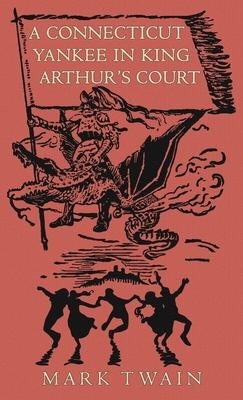The "father of American literature," Mark Twain, was one of the most brilliant humorists of the 19th century, famous for his classic works even to this day. Twain is most known for his jarring criticism and harsh, but genuine writing. Growing up in a Missouri town on the Mississippi River allowed Twain to write honest themes, such as slavery and poverty. While he is most known for what is known as the Great American Novel, The Adventures of Huckleberry Finn, Twain wrote many critical, satirical works of both fiction and nonfiction.
Mark Twain's A Connecticut Yankee in King Arthur's Court, published in 1889, is not just a whimsical, fantasy-meets-science-fiction novel filled with humor and romantic chivalry, but a satirical piece that questions the monarchy and privileges democracy. Twain was inspired by Le Morte d'Arthur, a collection of tales that follow King Arthur and the Knights of the Round Table, of which is clearly shown throughout his book. A Yankee engineer from Connecticut, Hank Morgan, is knocked unconscious and somehow wakes up in England during the year 528. There, he is taken captive by King Arthur in Camelot. However bad the situation, Hank is able to use his knowledge of the time period to amaze the court into sparing him, then sets off on an adventure to better the peasants of Camelot through new technology and innovations.
As with most of Twain's work, this novel is eccentric and a little offbeat for its time, but holds its own political subtext. "A Connecticut Yankee in King Arthur's Court is an exciting read for those looking for a playful read that digs a little deeper.
